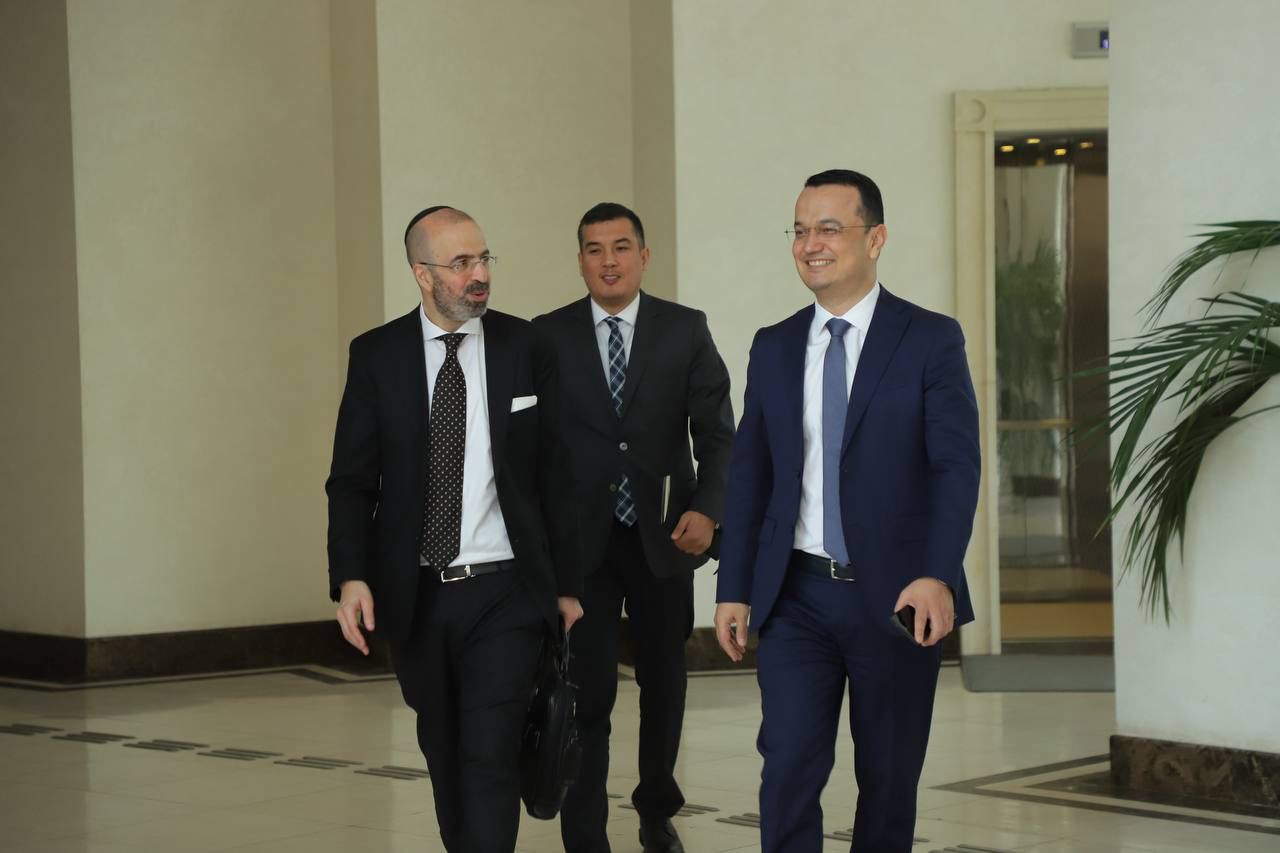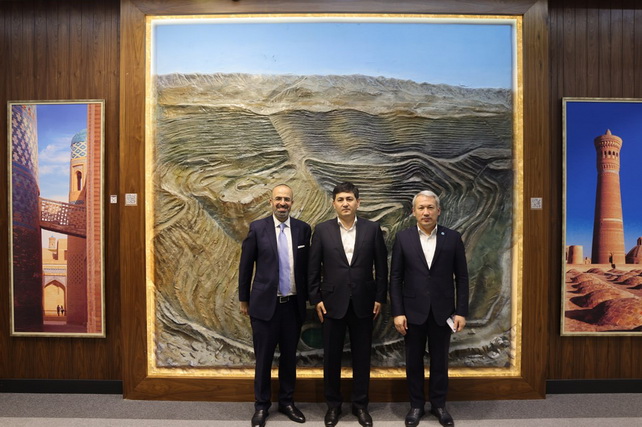Pini Althaus | Source | Chairman and CEO at Cove Capital

Pini Althaus
A native of Melbourne, Australia residing in New York City, Pini has been an Executive Officer in the mining & resource sector since 2002. He has successfully identified and acquired several significant mining projects in the United States, Canada, Australia, China and Latin America. His responsibilities in the resource sector have included not only the executive duties, also the operational duties, fund-raising, liaising with Government officials, shareholder relations and investor relations/public relations roles. Pini served as a consultant to the United Nations on critical minerals supply chains in the Arab Region.
Pini was among the first to sound the alarm about China’s dominance of the industry – back in 2019-2020.
Kaz Resources LLC, a portfolio company of Cove Capital, is the first and only U.S. company that, under the C5+1 partnership signed by President Biden, is working with strong US government support with the governments of the five “Middle Corridor” countries (Kazakhstan, Kyrgyzstan, Tajikistan, Turkmenistan, and Uzbekistan) to facilitate the creation of a U.S. and EU-friendly critical minerals supply chain. Minerals on these concessions include lithium, rare earths, tantalum, beryllium, niobium, cesium and tin. It also has a joint venture with state-owned mining company, Tau-Ken Samruk, to develop the Akbulak rare earth project, and an agreement with the Kazakh sovereign wealth fund, Samruk Kazyna on the development of critical minerals.
During his tenure as Founder and CEO of USA Rare Earth, Mr. Althaus oversaw the company's growth from an early-stage to a $500 million+ valuation within 3 years. He was responsible for the acquisition of an 80% operating joint venture interest in the Round Top Heavy Rare Earth and Critical Minerals Project located in Texas. Round Top hosts a wide range of critical heavy rare earth elements, and high-tech metals, including lithium, gallium, zirconium, hafnium, and beryllium. USA Rare Earth went public (NASDAQ: USAR) in March 2025.
-
Kaz Resources (https://kazresources.com/)
Chairman & CEO -
REEMAG LLC (http://www.reemag.net)
Co-Founder & CEO -

Cove Capital (https://www.covecapital.com.au/)
Chairman and CEO
started Aug 2015
-
Uzbekistan, American investment firm forge path for strategic mining projects
TASHKENT, Uzbekistan, May 1. Pini Althaus, CEO of the American investment firm Cove Capital, met with Uzbek officials at the Ministry of Investment, Industry, and Trade of Uzbekistan to discuss key areas of collaboration, Trend reports.
Article -
Cove Capital Delegation Visits UzTMK | TMK
A delegation from the prominent U.S.-based investment firm Cove Capital LLC, led by Managing Partner Pini Althaus, visited Uzbekistan Technological Metals Company (UzTMK). The visit
Article -
Uzbekistan and Cove Capital LLC discuss mining industry development
On 28 April 2025, Minister of Mining and Geology Bobir Islamov, along with senior officials from the Ministry and the leadership of the Uzbek Technological Metals Complex (Uzbek Kombinat Tekhnologicheskikh Metallov), held a meeting with Pini Althaus, Managing Partner of Cove Capital LLC.
Article
-
“On his first day in office, The White House announced that President Trump issued an Executive Order to restore America’s critical mineral dominance. (https://www.whitehouse.gov/presidential-actions/2025/01/unleashing-american-energy/)
This comprehensive and essential order mandates that within 60 days, the Secretary of State, Secretary of Commerce, Secretary of Labor, the United States Trade Representative, and the heads of any other relevant agencies, shall submit a report to the Assistant to the President for Economic Policy that includes policy recommendations to enhance the competitiveness of American mining and refining companies in other mineral-wealthy nations.
I strongly encourage the Trump Administration to include the C5+1 Critical Minerals Dialogue countries in this effort, specifically Kazakhstan and Uzbekistan. Both countries have an abundance of critical minerals, have welcomed American companies and have reformed their mining codes to facilitate U.S. investment and mining operations.”
-
The fact that we are reliant on China for defense equipment is just a completely unfathomable and untenable situation. Quite frankly, they can turn off the faucet.
-
December 3, 2024 (via LinkedIn):
Today, China announced a ban on U.S. exports of gallium, germanium, antimony, and superhard materials, escalating tensions ahead of President-elect Donald Trump's inauguration. This move highlights China’s dominance in critical mineral supply chains, with approximately 60% of global production and 85% of processing capacity, leaving the U.S. and allies vulnerable in manufacturing sectors like chipsets, defense, and EV batteries.China has a history of leveraging critical mineral exports as a geopolitical tool, as seen in 2010 against Japan. Recent actions include restrictions on gallium (July 2023), graphite (October 2023), and rare earth magnet technology (December 2023), as well as terminating antimony exports (August 2024).
“The move allows Beijing to better identify supply chain dependencies on China within the U.S. military-industrial complex. Critical minerals are among these items, as China dominates global mining and processing of rare earth materials.” (Reuters)
The U.S. must urgently invest in alternative sources, focusing on partnerships with Central Asia (C5+1), the Democratic Republic of Congo, and other countries hosting significant deposits of critical minerals, while addressing the limitations of agreements with allies like Australia and Canada. Despite significant incentives from the Australian government, and inclusion in tax benefits passed by the United States Congress, many Australian companies still enter off-take agreements with China (resulting in insignificant critical minerals being exported from Australia to the US).
Streamlining the permitting process for US-based critical minerals projects will also go a long way towards reducing our dependance on China.
The incoming administration should appoint a “Critical Minerals Czar” to coordinate efforts across federal agencies and develop a practical, long-term strategy. The time for action is immediate — “If not now, when?”




